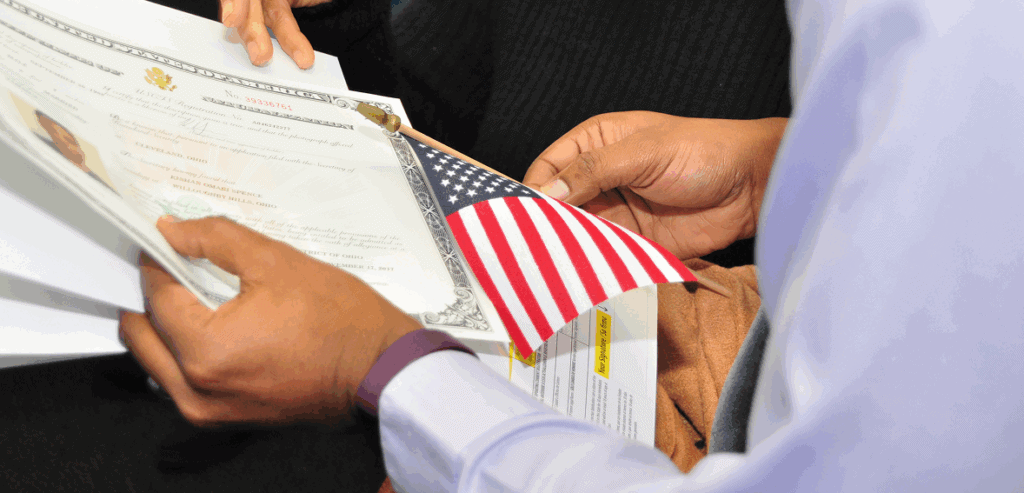
By Louise Peters July 16, 2025
Texas is widely known as one of the most business-friendly states in the U.S. With low taxes, a large consumer base, and a supportive regulatory climate, it offers great opportunities for entrepreneurs and small business owners. However, running a business in Texas still comes with legal responsibilities—especially when it comes to handling payments. Whether you’re accepting credit cards, offering installment plans, or applying surcharges, understanding local payment laws is essential for every merchant operating in the state.
Payment-related regulations can influence how you display prices, process refunds, deal with chargebacks, and disclose terms to customers. Some rules are enforced statewide, while others may vary by county or city. Complying with these laws not only helps avoid penalties but also builds trust with customers and payment processors.
Overview of Payment Regulations in Texas
Texas does not have a statewide law specifically governing all merchant payment practices. However, it does enforce various legal requirements tied to sales tax, refund policies, credit card usage, and consumer protection laws. These rules intersect with federal guidelines and the terms set by credit card networks like Visa and Mastercard.
Because payment practices are directly linked to consumer transactions, Texas relies on a combination of the Texas Business and Commerce Code, Texas Tax Code, and Texas Deceptive Trade Practices Act to regulate how merchants operate. Additionally, local ordinances in cities like Dallas, Austin, and Houston may introduce further requirements in specific industries or business types.
Understanding how these different layers work together can help Texas merchants avoid fines, ensure proper disclosures, and maintain smooth operations.
Sales Tax Collection on Payment Transactions
Sales tax in Texas is regulated by the Texas Comptroller of Public Accounts. As of 2024, the statewide sales tax rate is 6.25 percent, but local jurisdictions (cities, counties, special-purpose districts) can add up to 2 percent more, making the maximum possible rate 8.25 percent.
When a customer pays for goods or taxable services, the merchant is required to collect and remit the correct sales tax amount. Failure to collect the right tax can result in penalties, interest, and audits.
Merchants must ensure that:
- Sales tax is clearly displayed at checkout
- Tax rates are correctly configured in payment systems and point-of-sale terminals
- Tax collected is reported and submitted on time to the Texas Comptroller
Many modern payment processors help automate tax collection, but the final responsibility still lies with the merchant.
If your business sells both taxable and non-taxable items, like a café that sells food and merchandise, make sure your payment system can separate and correctly tax each category.
Credit Card Surcharges in Texas
One of the most frequently asked questions among merchants in Texas is whether they can charge customers an extra fee for using credit cards. The short answer is yes, but only under specific conditions.
Texas previously had laws prohibiting credit card surcharges. However, a federal court ruling invalidated that law, and as of recent updates, credit card surcharges are permitted in Texas if merchants follow the rules set by credit card networks.
To legally apply a surcharge, merchants must:
- Clearly disclose the surcharge to customers before the transaction
- Display signage at the point of sale (physical or digital)
- Limit the surcharge to the actual cost of credit card processing (usually up to 3 percent)
- Not apply the surcharge to debit card transactions, even if run as credit
These requirements help ensure that consumers are aware of additional fees and have the option to choose a different payment method. Merchants who fail to follow disclosure rules risk chargebacks and complaints.
It’s also important to consult your payment processor, as some may have their own policies about surcharges that go beyond legal requirements.
Refund and Return Policy Disclosures

Texas law does not mandate a specific return or refund policy for merchants. However, if a business chooses not to offer refunds or has specific return conditions, that policy must be clearly communicated to customers before the sale is completed.
Under the Texas Deceptive Trade Practices Act (DTPA), failing to disclose a no-refund policy or misleading customers about return terms can be considered a deceptive business practice.
To stay compliant:
- Post your refund and return policy at the point of sale
- Include the policy on digital receipts and invoices
- If your business is online, ensure the return policy is easy to find on your website
- Train staff to explain the policy to customers when asked
If your business offers only exchanges or store credit, you must state this clearly. Businesses that fail to clarify refund conditions may be forced to honor full refunds even when not intended.
Cash Discounting and Dual Pricing in Texas
Cash discounting is when a merchant offers a lower price to customers who pay with cash. Unlike credit card surcharges, which add fees, cash discounts subtract from the base price. This practice is legal in Texas and increasingly common among small businesses looking to avoid high processing fees.
However, businesses must be careful to disclose cash discounts properly. Dual pricing (where both cash and card prices are displayed) is the preferred method. For example, a store may list an item as:
- $9.70 (cash)
- $10.00 (credit card)
To ensure transparency and avoid misleading pricing, merchants should:
- Display both prices clearly on shelf tags, menus, or digital interfaces
- Print both prices on receipts or screens
- Train staff to explain the discount and pricing method
Offering a cash discount can also reduce chargebacks and lower overall processing costs, making it an attractive strategy if done in compliance with card network and state regulations.
Digital and Contactless Payment Compliance

Texas businesses that accept digital wallets (Apple Pay, Google Pay, Samsung Pay) or contactless cards must ensure their systems are secure and compliant with data protection standards. While there are no Texas-specific laws on this, businesses are expected to follow federal and industry regulations, particularly:
- PCI DSS (Payment Card Industry Data Security Standard) for card data protection
- FTC consumer protection guidelines for transparency and privacy
- Texas Identity Theft Enforcement and Protection Act, which governs how businesses handle sensitive customer information
If your med spa, retail store, or restaurant uses cloud-based payment apps, it’s your responsibility to:
- Use secure, encrypted networks
- Avoid storing card data unless tokenized
- Regularly update point-of-sale systems and software
- Inform clients of any terms related to digital payments, such as device compatibility or tap limits
In cities like Austin or Dallas, where tech adoption is high, offering secure digital payment options has become a key part of the customer experience. Staying current with security protocols not only protects your clients but also keeps your business safe from fines or lawsuits.
Texas Rules on Installment Payments and Subscriptions
Many businesses in Texas offer installment plans, memberships, or auto-renewing subscriptions. Whether you run a gym, med spa, tutoring center, or retail subscription box service, you must follow legal guidelines to ensure fairness and clarity.
Under Texas consumer protection law:
- Installment terms must be disclosed before the first payment
- The total cost, payment schedule, and interest (if any) must be clearly stated
- Cancellation terms for subscriptions must be made available in writing
- Clients must be able to opt out before auto-renewal if they choose to
If your business offers services like prepaid skincare packages, ensure that the client understands the payment breakdown. Provide receipts or contracts that reflect the plan’s total value, schedule, and any penalties for cancellation.
Failing to follow proper disclosure practices can lead to disputes, chargebacks, or investigations by consumer protection agencies.
Chargeback Rules and Merchant Protections
A chargeback occurs when a customer disputes a transaction with their card issuer, which can lead to a reversal of funds from the merchant’s account. In Texas, chargebacks follow national rules governed by the credit card networks, but there are local implications for how businesses must respond.
Texas law does not give merchants special rights in chargeback disputes, but being proactive can reduce the risk:
- Always provide clear receipts, especially for high-ticket services
- Collect signed authorization for recurring or high-risk transactions
- Use client contracts or intake forms for services that require multiple sessions
- Be prompt and thorough when responding to chargeback notifications from your processor
Businesses that accumulate too many chargebacks may face increased fees or termination of their merchant account. Keeping accurate records and educating clients about charges is your best defense.
Compliance with the Texas Deceptive Trade Practices Act (DTPA)

The Texas Deceptive Trade Practices Act is one of the most important consumer protection laws affecting merchants in the state. It prohibits false, misleading, or deceptive business practices, including those related to payments and billing.
Under DTPA, a business could be penalized for:
- Failing to disclose all fees and charges before a sale
- Misrepresenting a product or service’s price or value
- Offering payment plans without explaining the terms
- Using confusing or contradictory refund policies
Violations can lead to lawsuits, fines, and damage to your reputation. The best protection is transparency. Make sure all payment-related policies are communicated clearly, documented properly, and presented consistently across all customer touchpoints.
Industry-Specific Payment Rules in Texas
Certain industries in Texas may face additional payment regulations. For example:
- Medical and med spa businesses must often comply with HIPAA regulations if they store or transmit health-related billing information
- Liquor and tobacco retailers are subject to stricter rules for age verification and may not allow installment payments for certain goods
- Real estate or home improvement businesses must disclose escrow or deposit handling practices if offering large-sum payments or delayed services
If you operate in a specialized industry, check with local licensing boards or regulatory agencies to understand how payment laws apply to your sector.
Staying Ahead with Professional Support
Understanding local payment laws in Texas can be challenging, especially for busy small business owners. To stay compliant, consider working with:
- Local business attorneys who understand Texas regulations
- Certified public accountants (CPAs) with experience in retail or service industries
- Payment processors that offer compliance support
- Industry associations or chambers of commerce that share regulatory updates
Periodic legal reviews of your policies, contracts, and marketing materials can help prevent accidental violations. When in doubt, err on the side of transparency and documentation.
Final Thoughts
Running a business in Texas comes with many advantages, but it also brings responsibility. Local payment laws are designed to protect both consumers and merchants, and understanding them is essential to long-term success.
Whether it’s collecting sales tax, managing refunds, disclosing surcharges, or offering installment plans, every payment decision should be grounded in compliance and clarity. By staying informed, merchants in Texas can build trust, reduce risk, and maintain a competitive edge in their communities.
With the right systems, staff training, and legal awareness, you can simplify payment compliance and focus on what matters most—growing your business and serving your customers.
FAQs
Are credit card surcharges legal in Texas?
Yes, credit card surcharges are allowed in Texas if they are clearly disclosed and do not exceed the cost of processing. Debit card surcharges are not permitted.
Does Texas require merchants to offer refunds?
No, but if a merchant does not offer refunds, that policy must be clearly communicated before the sale to avoid legal issues under the DTPA.
Is cash discounting legal in Texas?
Yes. Offering a discount for paying in cash is legal, as long as the price difference is disclosed clearly and fairly.
Do online Texas businesses have to collect sales tax?
Yes, if the business has a nexus in Texas or sells to Texas residents, they are generally required to collect and remit sales tax.
What laws apply to installment billing in Texas?
Installment billing must comply with Texas consumer protection laws, which require clear disclosure of terms, total cost, and cancellation conditions.